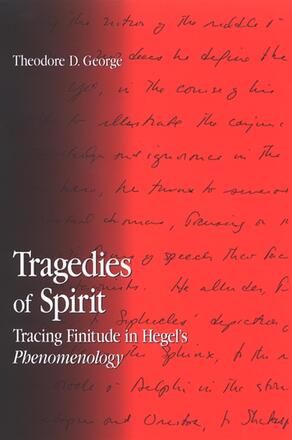
Tragedies of Spirit
Tracing Finitude in Hegel's Phenomenology
Alternative formats available from:
Examines tragedy in Hegel’s Phenomenology of Spirit.
Description
In Tragedies of Spirit, Theodore D. George engages Hegel's Phenomenology of Spirit to explore the philosophical significance of tragedy in post-Kantian continental thought. George follows lines of inquiry originally developed by Nietzsche, Heidegger, Gadamer, and Derrida, and takes as his point of departure the concern that Hegel's speculative philosophy forms a summit of modernity that the present historical time is called to interrogate. Yet, George argues that Hegel's larger speculative ambitions in the Phenomenology compel him to turn to the resource of tragedy in order to give voice to issues of incommensurability, discontinuity, otherness, strife, and crisis. From this standpoint, Hegel's interest in the tragic proves to be more pervasive and to run deeper than has previously been recognized. The author shows that Hegel's reliance upon the tragic not only stretches and tests assumptions of speculative philosophy, but also illuminates original insights into human finitude. While situating Hegel's approach to tragedy as part of a broader response to Kant, George also contextualizes Hegel's interest in tragedy with reference to figures in German Idealism and Romanticism, such as Schelling, Hölderlin, and Schlegel.
Theodore D. George is Assistant Professor of Philosophy at Texas A&M University.